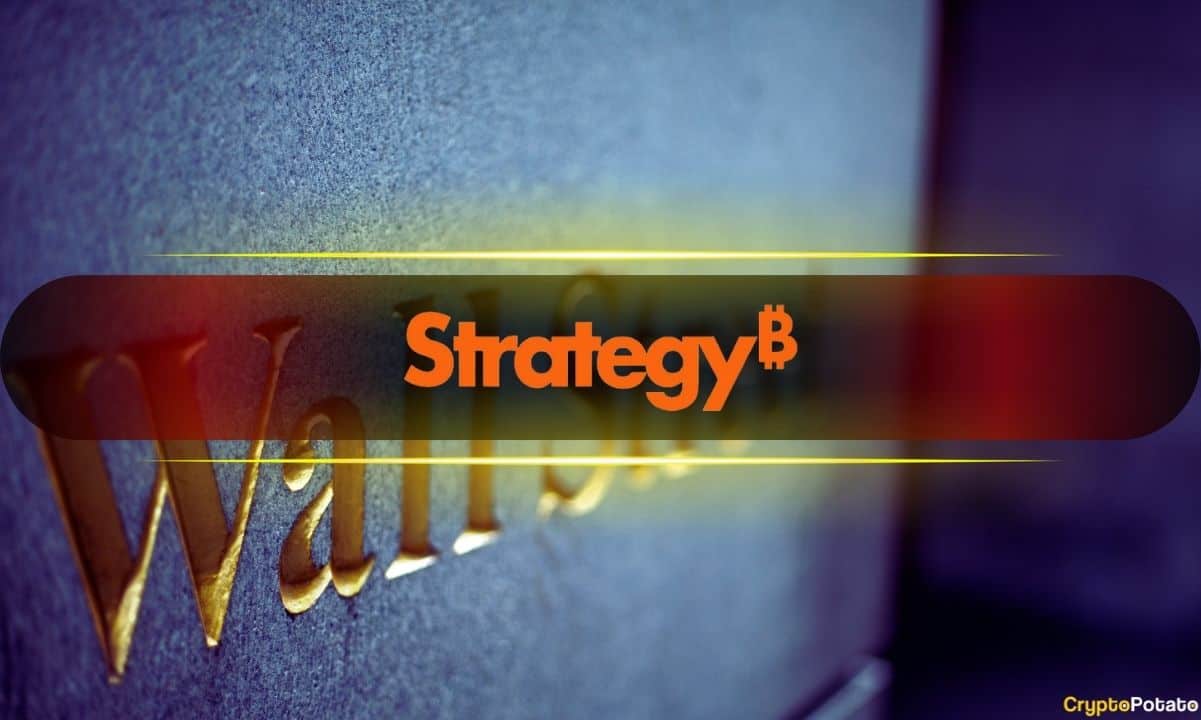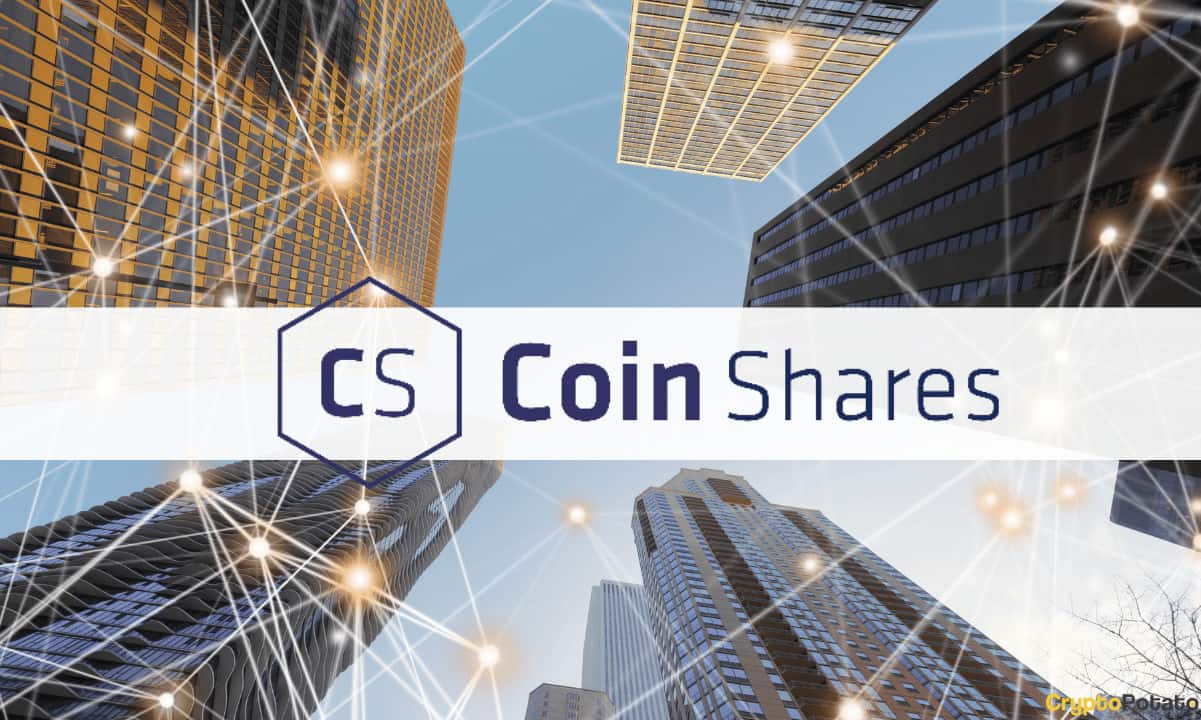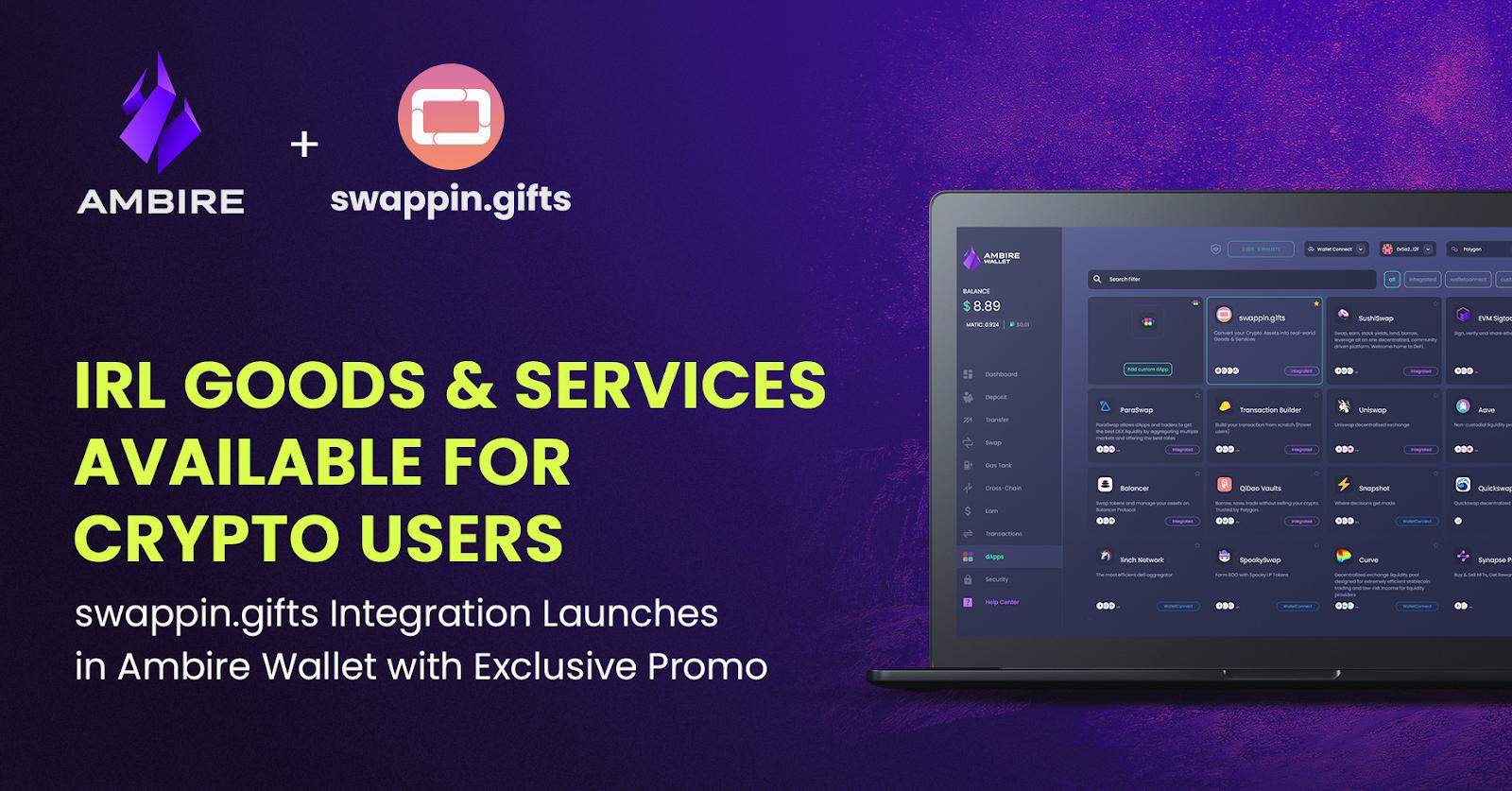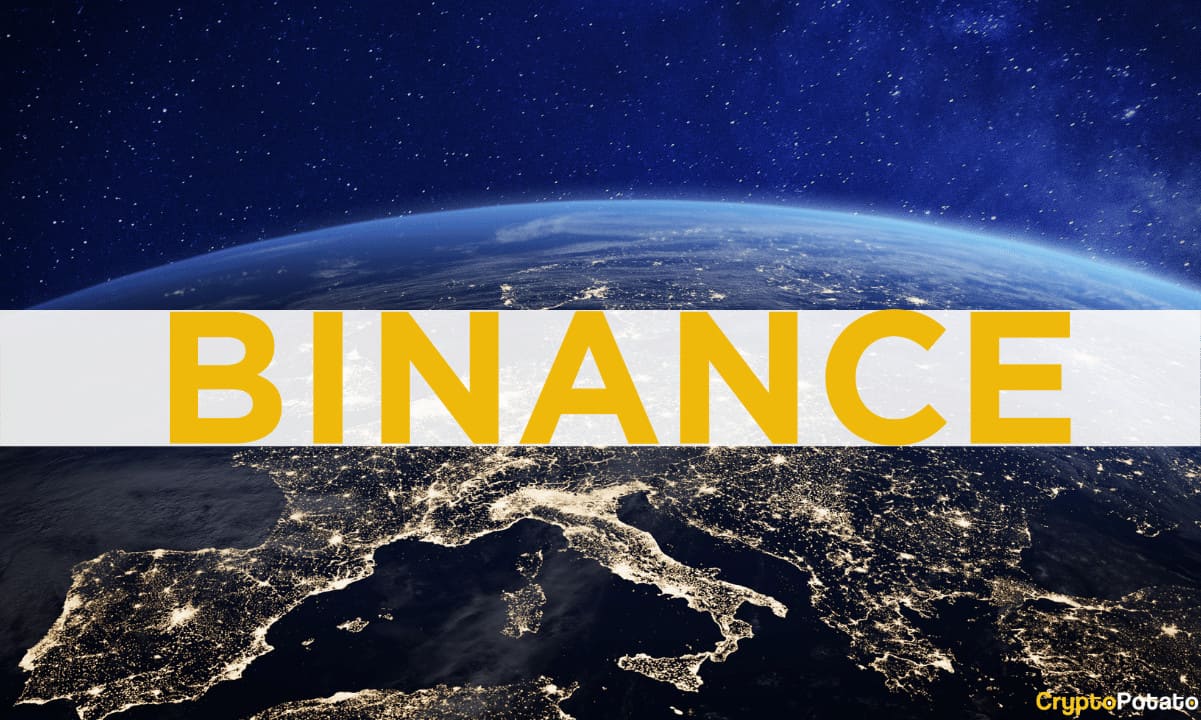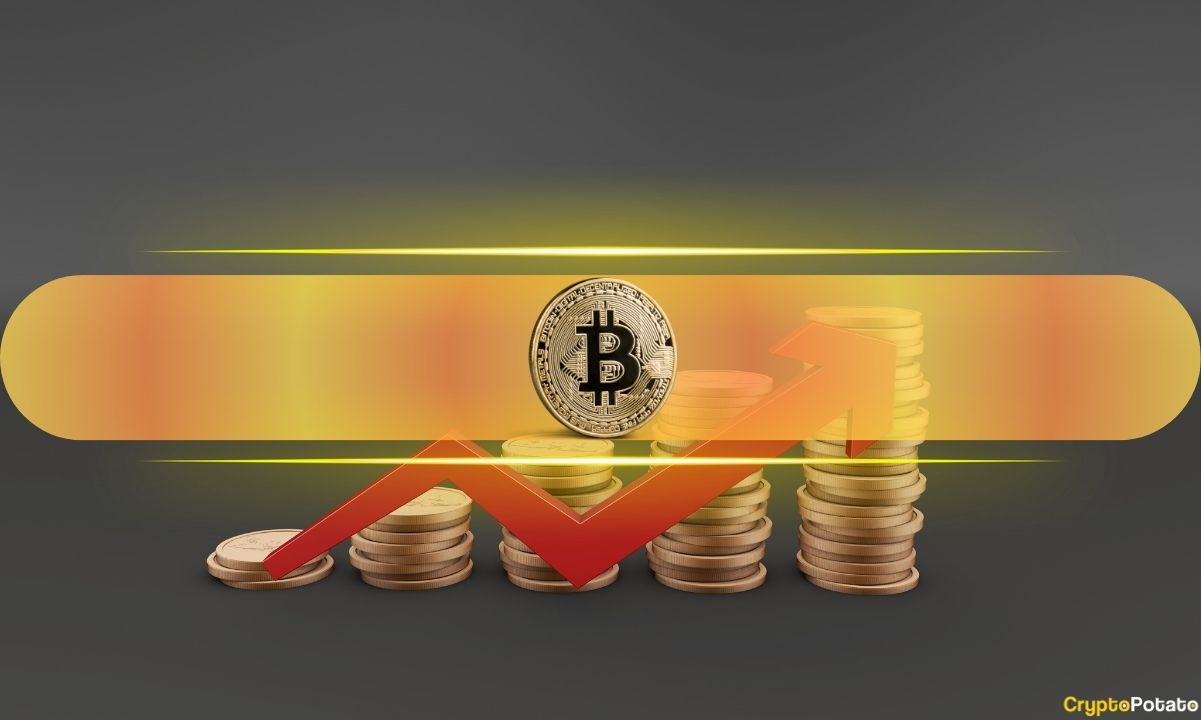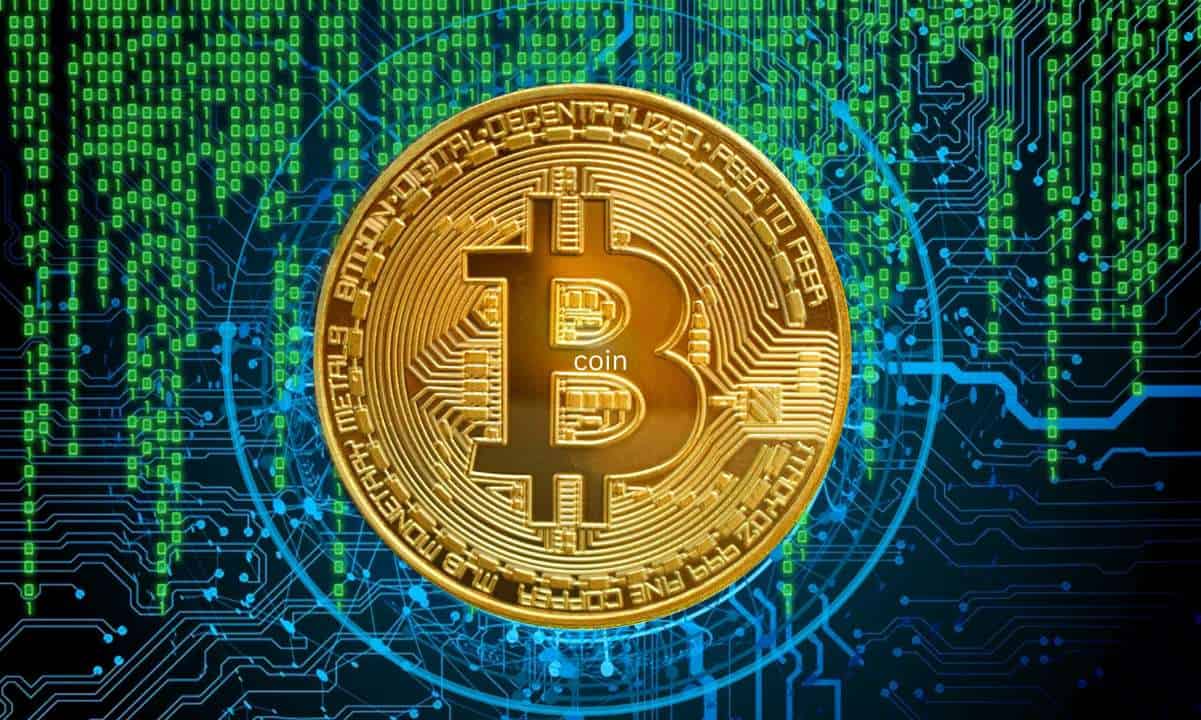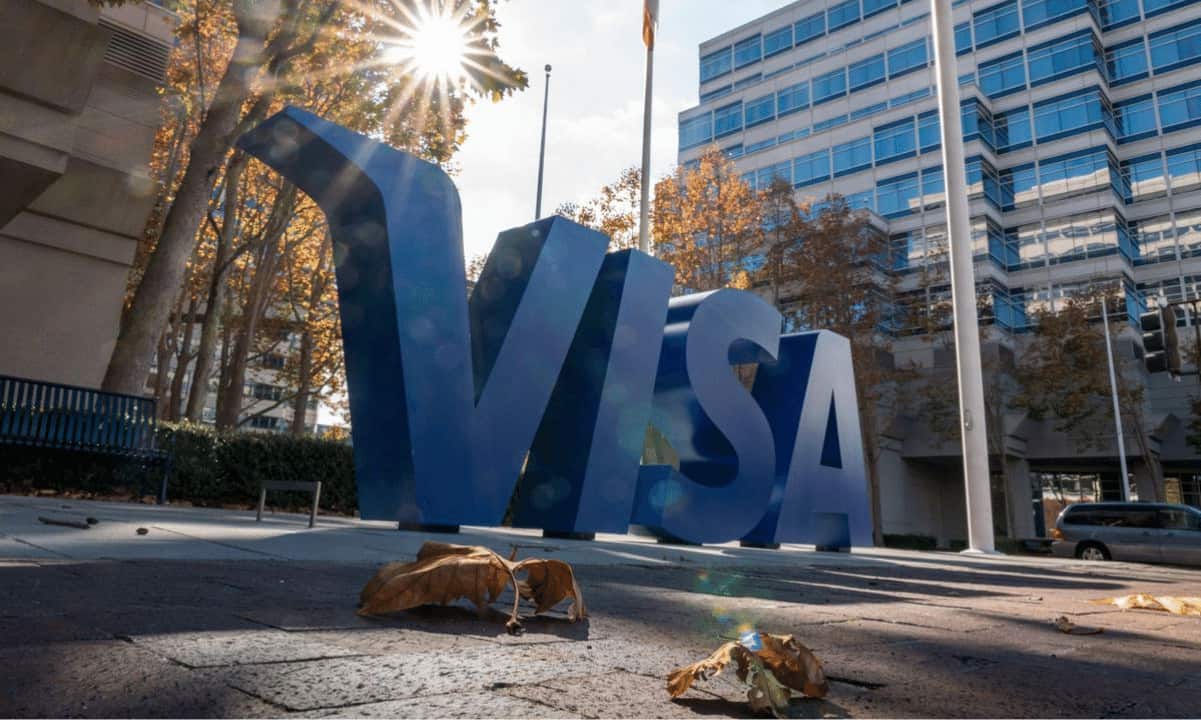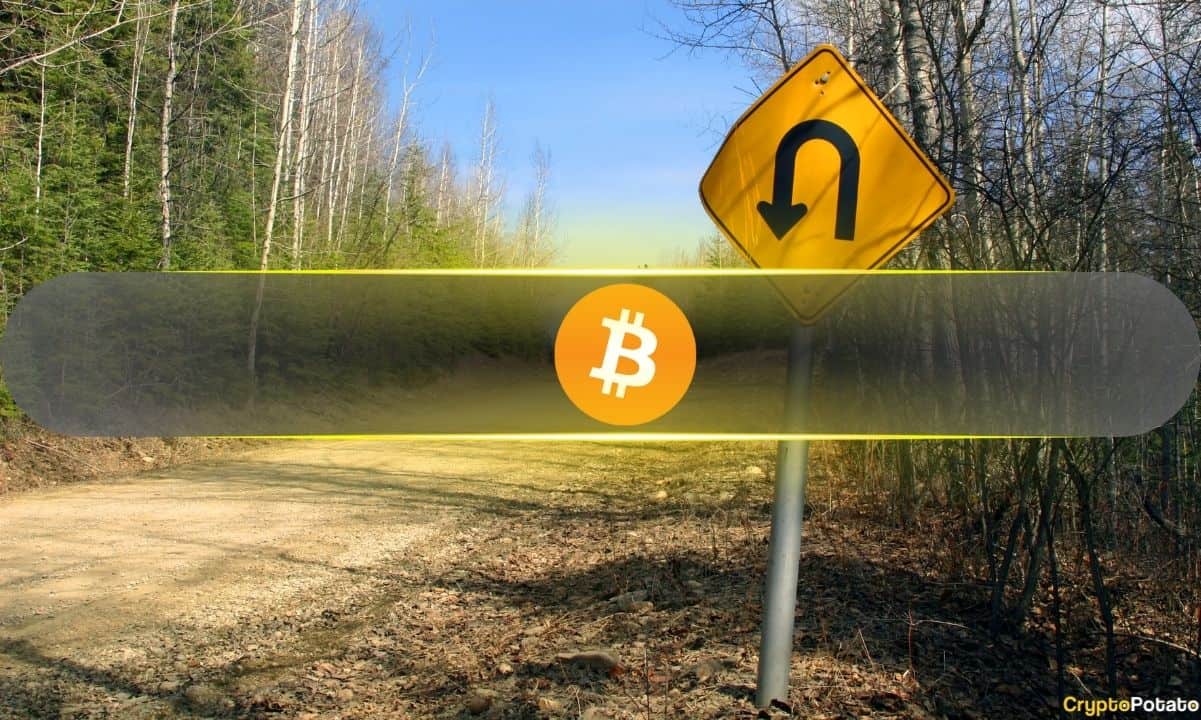This Crypto Project Soared 220% Because of Ethereum’s High TX Fees
Recent heavy congestion on the Ethereum blockchain appears to have had a beneficial knock-on effect for one cryptocurrency project in particular.
Loopring (LRC) is a protocol for building non-custodial decentralized exchanges (DEXs) on Ethereum. It is also one of the few projects currently placed ahead of the curve thanks to its use of zk-rollup technology, which scales Ethereum transactions from ~15/sec, to ~3,000/sec.
It’s interesting to note, therefore, that the value of Loopring increased 220% from July into September, coinciding with the sudden explosion in the cost of using Ethereum.
Loopring Climbs Hand-in-Hand with Rising ETH Fees
Since the beginning of July alone, the value of Loopring increased 220% from a token price of $0.076 up to $0.247. In the same period, the cost of transacting on the Ethereum blockchain shot up by 539% – or 1,959%, if we take the all-time high of September 2nd as a data point.
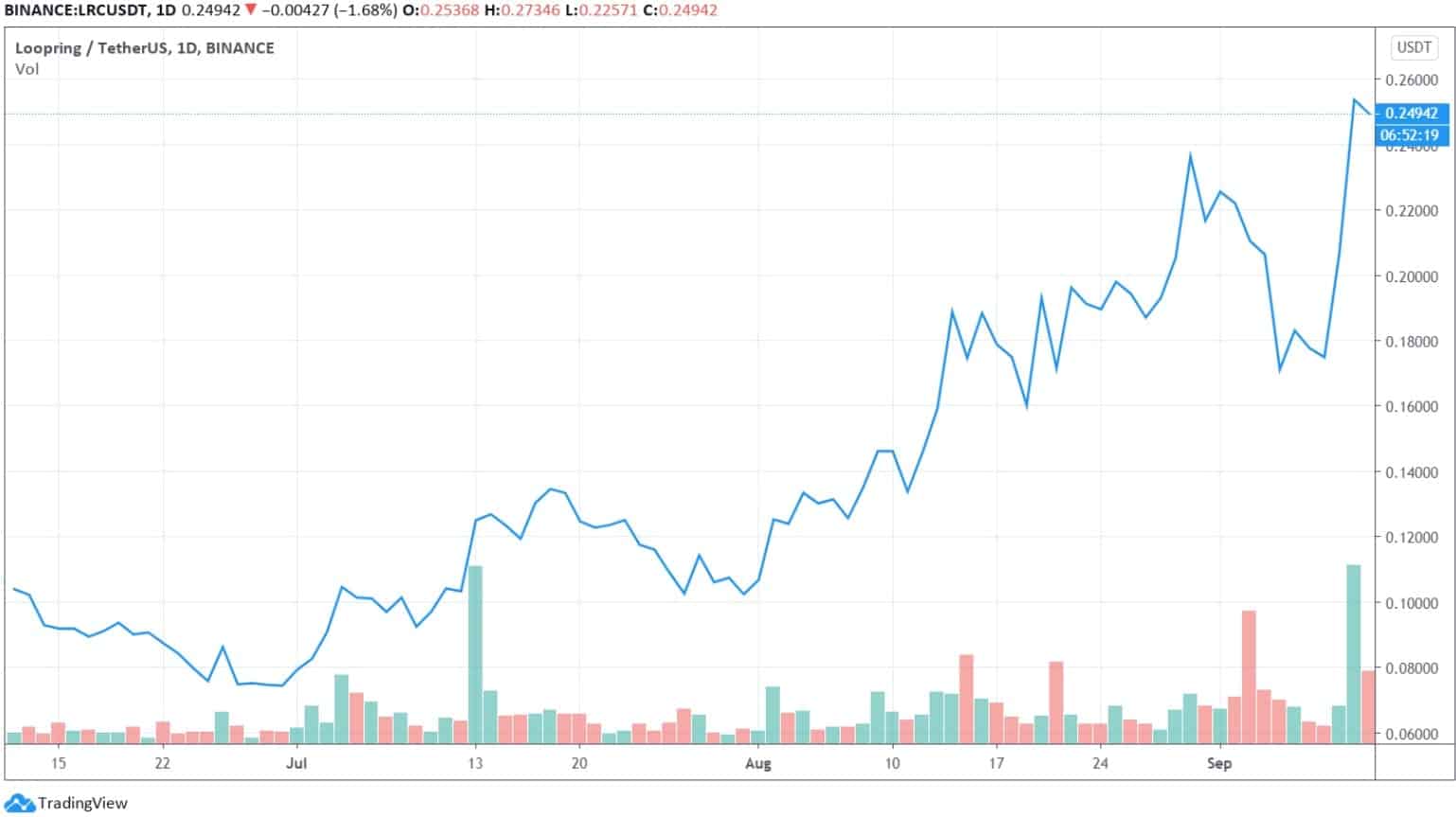
As transaction fees soared, Ethereum founder Vitalik Buterin was already urging developers and users to adopt Loopring’s zk-rollup technology. Buterin name-checked Loopring specifically on several occasions, leaving no secret as to the protocol’s capabilities. On September 1, Buterin replied to claims that Ethereum was too expensive to be used for charitable donations, writing:
“To those replying with “gas fees are too high”, my answer to that is “well then more people should be accepting payments directly through zksync/loopring/OMG”. Seriously, scaling to 2500+ TPS for simple-payments applications is here, we just need to… use it.”
Correlation/Causation?
Ethereum’s average transaction fees rose all throughout 2020, from early January’s low of $0.07 up to the recent all-time high of $14.58. The same general trajectory was shared by Loopring, as its value climbed 1,176%, from $0.021393 in January, up to $0.247 at the time of writing.
Few cryptocurrency projects can claim the same upward momentum, except a few anomalous yield farming tokens.
Remarkably, Loopring’s value didn’t tank on September 2, when Bitcoin and the majority of the crypto market crashed. Rather, it kept climbing up until September 3, when Ethereum’s exorbitant transaction fees began to revert to more reasonable levels.
Zk-rollups are a layer-two scaling solution which can bundle thousands of Ethereum transactions into one, single transfer. Tether, which is one of the most frequent consumers of gas on Ethereum, recently announced it would adopt zk-rollup technology in a bid to bring tx fees back down.
The post This Crypto Project Soared 220% Because of Ethereum’s High TX Fees appeared first on CryptoPotato.

